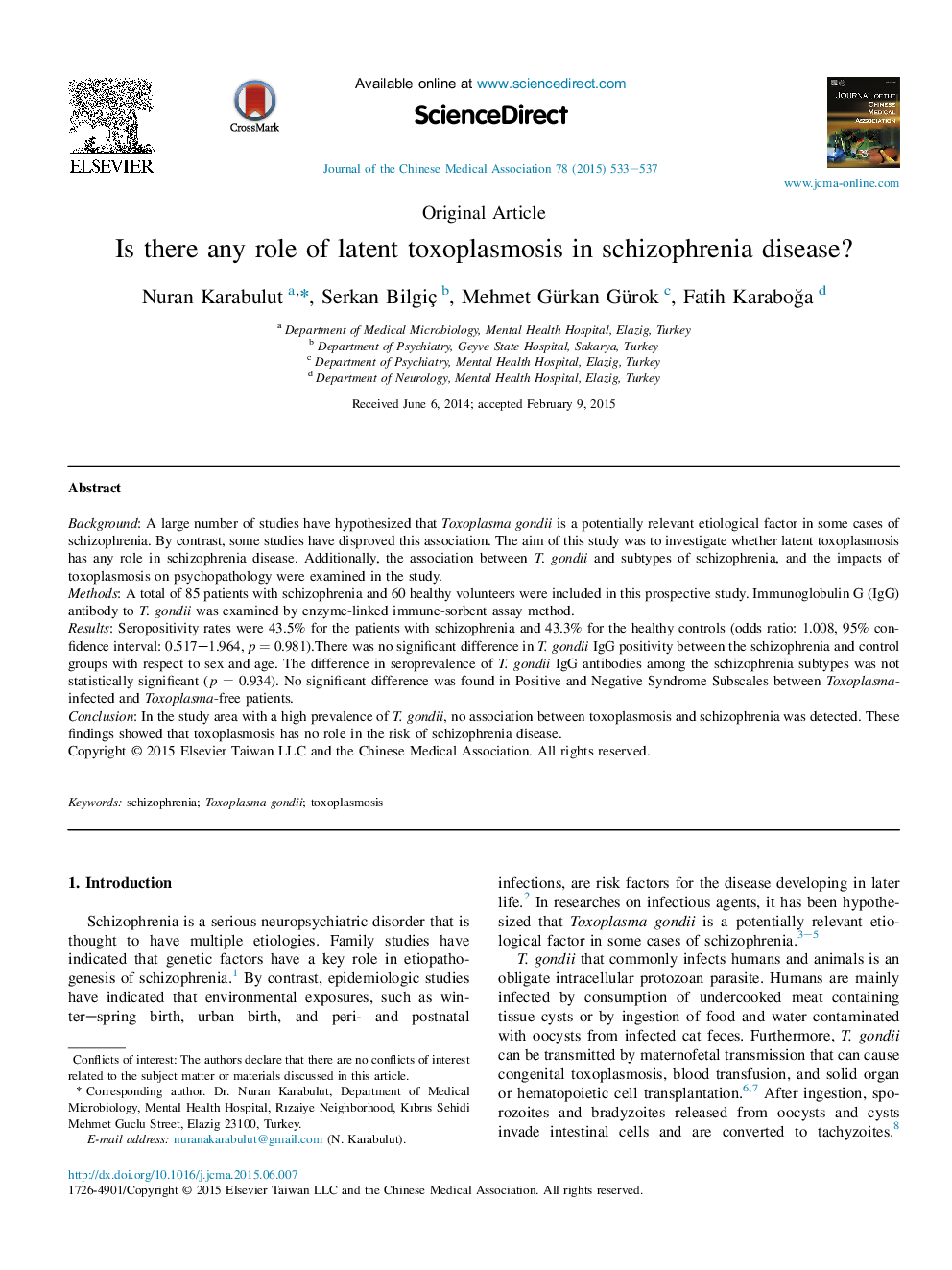| Article ID | Journal | Published Year | Pages | File Type |
|---|---|---|---|---|
| 3475935 | Journal of the Chinese Medical Association | 2015 | 5 Pages |
BackgroundA large number of studies have hypothesized that Toxoplasma gondii is a potentially relevant etiological factor in some cases of schizophrenia. By contrast, some studies have disproved this association. The aim of this study was to investigate whether latent toxoplasmosis has any role in schizophrenia disease. Additionally, the association between T. gondii and subtypes of schizophrenia, and the impacts of toxoplasmosis on psychopathology were examined in the study.MethodsA total of 85 patients with schizophrenia and 60 healthy volunteers were included in this prospective study. Immunoglobulin G (IgG) antibody to T. gondii was examined by enzyme-linked immune-sorbent assay method.ResultsSeropositivity rates were 43.5% for the patients with schizophrenia and 43.3% for the healthy controls (odds ratio: 1.008, 95% confidence interval: 0.517–1.964, p = 0.981).There was no significant difference in T. gondii IgG positivity between the schizophrenia and control groups with respect to sex and age. The difference in seroprevalence of T. gondii IgG antibodies among the schizophrenia subtypes was not statistically significant (p = 0.934). No significant difference was found in Positive and Negative Syndrome Subscales between Toxoplasma-infected and Toxoplasma-free patients.ConclusionIn the study area with a high prevalence of T. gondii, no association between toxoplasmosis and schizophrenia was detected. These findings showed that toxoplasmosis has no role in the risk of schizophrenia disease.
